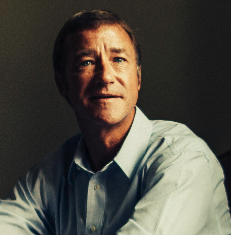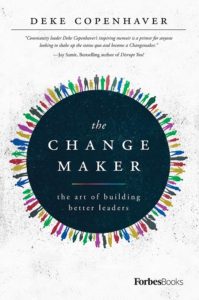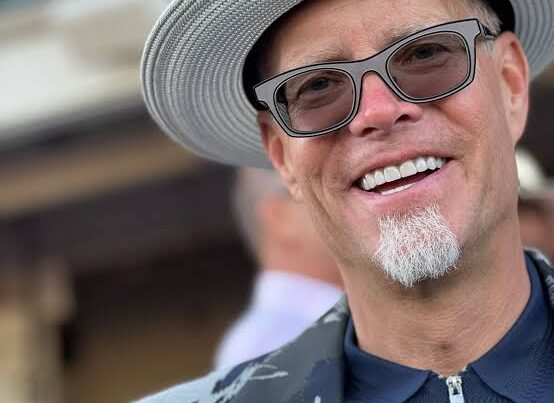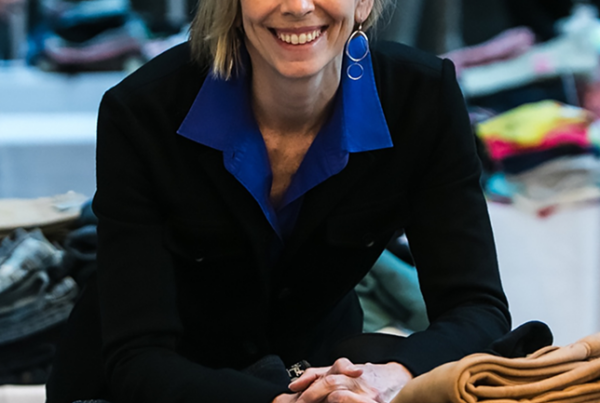Podcast: Play in new window | Download
Subscribe: RSS
Is it possible to have character and integrity and still be a successful politician?

Deke Copenhaver
When Deke Copenhaver took over as mayor of his hometown of Augusta, Georgia, the city’s politics were broken and riven along racial lines. Half of the city commissioners were white and half were African American. Neither group trusted the other, so nothing got done.
Who was it that paid the price for all of the political posturings? The citizens of Augusta. As Deke saw it, something fundamental about leadership needed to change. So, when the opportunity arrived in 2005, Deke knew he had to run for office. Against all reasonable odds, Deke and a band of enthusiastic twenty and thirty-somethings who knew little about running a political campaign won the election. He had his first commissioners meeting as mayor on December 20th, 2005, and began the work of being a Changemaker.
From 2005 through 2014 Deke was a catalyst in helping to transform Augusta, attracting businesses to spur economic development, implementing social programs that impacted the lives of Augustans on a daily basis, and developing communities that for many years had been neglected by the city’s leadership.
Deke has also served as managing consultant for the Augusta Economic Development Authority. He’s been recognized on multiple occasions by Georgia Trend Magazine as one of the 100 Most Influential Georgians and has spoken at many national conferences on topics including city design, economic development, healthcare, veterans’ issues, and the nonprofit industry.
Deke currently authors a monthly column on leadership published by the Georgia Municipal Association. Deke earned a BA in Political Science from Augusta College and is a graduate of Leadership Georgia and the Mayors’ Institute on City Design.
What We Discuss With Deke Copenhaver in this Episode
- Governing to the majority and focus on serving the greater good
- Leadership through diversity and inclusion
- Stigma in politics and healing the racial divide
- Integrity, sincerity, and character in public office
- The power to inspire and creating lasting positive impact
Episode Highlights
What inspired you to run for office?
In 2004, I attended the program called Leadership Georgia and was challenged to go into public service to take over the unexpired term of the previous mayor for one year. I had all the leadership experience I needed as a businessman and as chair of different boards of non-profit organizations. I had no political experience but I thought that it is practical to take that leadership experience into office.
I was told by respected business leaders that I shouldn’t run [for office] because I wouldn’t get African-American votes, older people wouldn’t vote for me, and younger people just would not vote and they were supporting another candidate. But I’m very competitive and decided to go for it.
What happened was we had [a group of] 20-30 year olds, who knew nothing about politics, to run the campaign and they brought so much contagious energy to the campaign which helped to propel me into office in 2005, 2006, and then 2010.
What does being a “political agnostic” mean?
I didn’t see things through a political lens. I ran the city from a businessman’s standpoint and applied common sense because for me, it was not about politics but it was about public service. I didn’t get caught up in the politics.
How do you deal with minority groups?
The extremes would attack me regularly but I simply listened to their views without being persuaded by the views of the minority. I simply would illustrate that catering to the tantrums of a child would not be good to the child and so in the same fashion for a city. So I advised my elected colleagues not to succumb to 15 angry people to influence them to make a bad decision and reminded them that we are serving a city with 200,000 people. Being swayed by 15 angry people is not leadership; that’s being bullied.
How do you support the minority groups and with diversity inclusion?
Serving the greater good with the decision making process. Everybody’s going to benefit in the end. In any leadership position, not everybody is going to like what you do but that can’t stop you from making a decision.
In focusing on serving the greater good, in the end there’s something in that leadership style for everybody.
Talk about your book, The Changemaker: The Art Of Building Better Leaders. Why did you write it? Who is it for? What are people going to learn from it?
(Deke recounts the story on how Forbes contacted him through email to write a book and how they discovered him through his leadership column for the Georgia Municipal Association.)
This book is for leaders and the content is much of my writings from my 5 years of doing the leadership column. It was also a fulfillment of a life-long dream for me because as a kid I wanted to be an author but ended up as a mayor.
The message of the book is for leaders – whether you are in a community, a mother or father or an uncle, for politics or business, and whether you work in non-profit organizations. In whatever shape or form, everybody is a leader when there are people looking up to you as an example.
*Nicole Jansen: Everybody can be a leader or be an agent of change and transformation and bring that unique value to the world as a purpose in life.
Other Engagements:
In 2020, at the University of Texas in El Paso in their Student Engagement Leadership Center, I found out that my book, The Changemaker: The Art Of Building Better Leaders, was being used as a reference in their Powerful Pages Program so there was a lot of interest and invitations to speaking engagements but the pandemic happened.
My friends wrote the best-selling book, Diversity and Inclusion The Submarine Way: What Life Underwater Taught Me About Inclusion by Deborah Cake Fortin and John Gregory Vincent.
The premise of the book: It is about not having to like each other but you have to learn to get along and be able to work together. The authors have been doing consulting on leadership through diversity and inclusion for years and so I encouraged them to take their expertise to help cities. This led to our formation of the Submarine Way Alliance, a consulting group providing services to small and medium sized cities. The big focus right now is advising them on how to invest wisely and maximize the use of their Stimulus Funds which is widely open for abuse.
I have a passion for helping to take lessons learned in Augusta and helping other cities during these difficult times. I do not want to see cities wasting money, precious municipal resources, and opportunities.
What is needed to fuel real and lasting change?
It begins at the grassroots level. A partnership is needed between the government and business community leaders to effect change. We have to take a leap of faith and be willing to challenge the status quo.
I look at everything I do in life as an entrepreneurial endeavor. You have to have the courage to challenge the status quo.
Don’t be afraid to challenge your critics because they will always be there.
What causes politicians to go off-track from their initial desire to effect positive change?
Temptation is part of it because there is so much money involved in politics. I believe a good sense and level of integrity is so important to avoid these temptations.
(Deke shares a story from his childhood on how his father instilled in him integrity and the lesson of not receiving gifts from people whom you do not know).
People run with the best of intentions but once you start cutting deals and entertaining favors it becomes a very slippery slope.
From your perspective, how can this temptation be avoided?
Campaign finance reform and term limits would help the situation tremendously.
(Deke tells the story on running a $5,000 campaign)
About having a level of integrity:
My book, The Changemaker: The Art Of Building Better Leaders, appeals to young leaders because my book is not about politics, it’s about leadership.
At a speaking engagement recently, someone asked me what is the core of my book and my answer was, “It’s that you can maintain your character and integrity and treat everybody with dignity and respect in leadership positions even in politics and still be successful.”
The calling I have now is to engage that next generation of leaders.
(Deke shares an example a teacher in Augusta listening to a vice presidential debate, one of them explaining three bullet points to fix the American education system )
How did you deal with being hated as a politician? How did you build trust?
There is a stigma of a typical politician and there’s a reason for that stigma. I did continual outreach throughout the community. One of my focuses was healing the racial divide. When I was out there doing outreach, there were no cameras nor photo ops [for publicity]. I believe you cannot fake sincerity. People, especially the younger generation, can sense that if your heart’s not in it, they have a big “BS meter” because they’ve been sold to their entire lives. They sense that if you’re not sincere in wanting to help them or wanting to make a difference in the world.
*Nicole references to the Scripture in Matthew 6:3: “But when you give to the poor, do not let your left hand know what your right hand is doing”
As leaders of transformation, we need to have the right motives, the right reasons.
Deke:
We must focus on building tangible things – on things that stand the test of time.
We should not focus on our differences because in six months time nobody will remember the issues but let’s focus on building tangible things that will last and leave an impact. Focusing on economic development – building libraries, exhibition centers will always remain even after we are gone.
Transformational leaders should focus on [having] the power to inspire. No one person can do anything alone. If you can inspire people to work with you, there is nothing you can’t do.
(Deke telling a story about a law firm getting more insights and ideas from the “Shadow Board” composed of young lawyers.)
Episode Resources
- Book: The Changemaker: The Art Of Building Better Leaders
- Leadership Assessment: https://deke-copenhaver.com/assessment/
Additional Resources Mentioned
Book: Diversity and Inclusion The Submarine Way: What Life Underwater Taught Me About Inclusion by Deborah Cake Fortin and John Gregory Vincent
Connect With Deke Copenhaver
- Website: https://deke-copenhaver.com
- Facebook: https://www.facebook.com/dekecopenhaver/
- Instagram: http://instagram.com/dekecopenhaver
- LinkedIn: http://linkedin.com/in/deke-copenhaver-621915b0
- Twitter: http://twitter.com/dekecopenhaver
Did You Enjoy The Podcast?
If you enjoyed this episode please let us know! 5-star reviews for the Leaders Of Transformation podcast on Apple Podcasts, Spotify, Pandora or Stitcher are greatly appreciated. This helps us reach more purpose-driven entrepreneurs seeking to make a positive impact in the world. Thank you. Together, we make a difference!
Additional Episodes You May Like
- 354: Simon Chadwick: Shaping Our Nation’s Future
- 352: David Schwerin: How to Solve World Issues with Conscious Globalism
- 338: Jeremy Scrivens: Transforming the Future of Work Through Leadership and Convergence
- 263: Vishen Lakhiani: Facilitating Global Transformation in One Generation
- 140: Julie Jakopic: Inspiring Women In Politics










